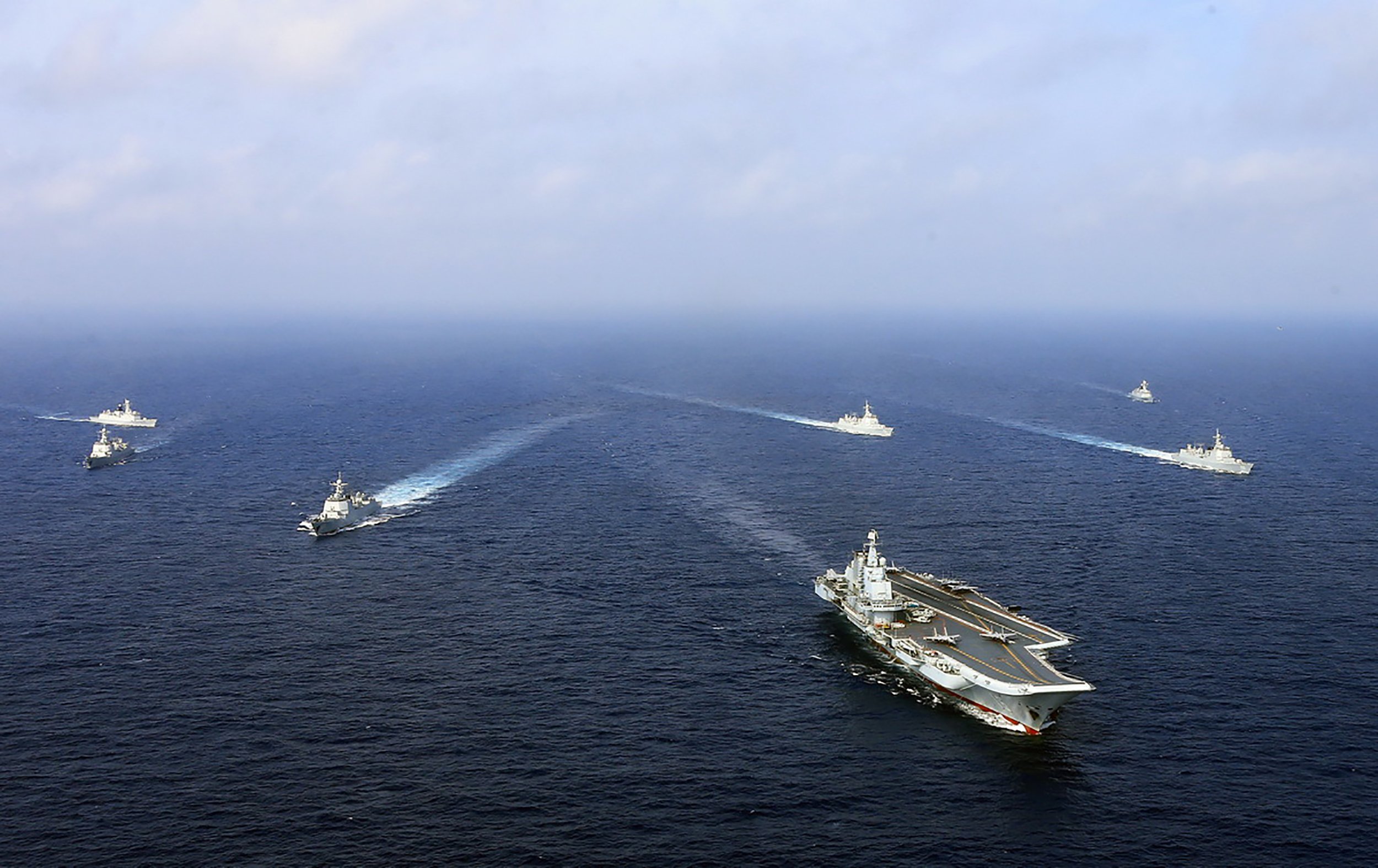
A Chinese state-backed newspaper has issued a stern warning to the U.S. over its stance on Taiwan, cautioning Washington that Beijing will not hesitate to act to protect its core interests.
The threat was issued in a Global Times op-ed published Tuesday. On Sunday, two Chinese fighter jets crossed over the "middle line" between China and Taiwan, prompting protests from both Taipei and Washington.
But the Global Times op-ed called such criticism "ridiculous," accusing the U.S. and Taiwanese President Tsai Ing-wen of "continuously breaking the status quo in the Taiwan Straits."
The nation island of Taiwan has long been a diplomatic flashpoint between the U.S. and China. Beijing considers the island—officially called the Republic of China and an independent nation for more than 70 years—part of China, and under its "One-China" policy has retained its commitment to reabsorbing the island, whether through diplomatic or military means.
But U.S. lawmakers have long maintained support for the Taiwanese independence, committing to weapons deals and regional military deployments to protect the island from a Communist Party takeover.
According to the Global Times, "Washington is following a wrong line in the Taiwan Straits. It is playing the Taiwan card because it regards China as a strategic rival. The U.S. has overestimated its military power's deterrence of the mainland as well as Taiwan's wish to always serve as a U.S. pawn. Washington has also underestimated Beijing's resolve and ability to take countermeasures."
American forces have conducted naval and aerial "freedom of navigation operations" in the Taiwan Straits and in the South China Sea, where Beijing is enforcing contested territorial claims by building a network of island military bases. The operations are designed to keep pressure on Beijing and assert Washington's belief that the areas constitute international waters. The most recent U.S. deployment to the Straits was on March 24.
Tsai has warned that Chinese military activity in the area has also become more intense. But the Global Times asked, "Why didn't they ever consider that the [People's Liberation Army] would take countermeasures? It's Washington's blind confidence if it believes Beijing fears to act considering their relations."
"Although China hopes to maintain stable China-U.S. relations in the long run, it is prepared for fiercer competition in some areas," it continued. "China will not take the initiative in escalating disputes, but it will fight to protect its core interests, especially on the Taiwan question."
The article argued that the American military, for all its might and technology, can only "send warships and upgrade its relations" with Taipei. "If the U.S. military returns to Taiwan, China's Anti-secession Law will be violated, and the PLA will launch a direct attack," it warned.
"Washington is choosing the wrong place, time and opponent to flex its muscle in Taiwan Straits," the op-ed added.
Weapon sales have formed a key pillar of U.S. support for Taiwan. President Donald Trump's administration has reportedly agreed to sell at least 60 U.S.-made F-16 fighter jets to Taiwan, which according to Bloomberg would be the first advanced warplane sale since 1992.
"Some radical Americans suggest selling more advanced aircraft to Taiwan, which is a dangerous move that breaks the status quo," the Global Times article read. "The mainland will adopt stiffer countermeasures. Neither should the U.S. overestimate the Taiwan military's loyalty. The advanced military technologies that the U.S. sells to Taiwan will eventually come back to the mainland.
"If the current U.S. government fails to understand the complexity of the Taiwan question and acts aggressively, it is bound to pay the price," the op-ed concluded.
Uncommon Knowledge
Newsweek is committed to challenging conventional wisdom and finding connections in the search for common ground.
Newsweek is committed to challenging conventional wisdom and finding connections in the search for common ground.
About the writer
David Brennan is Newsweek's Diplomatic Correspondent covering world politics and conflicts from London with a focus on NATO, the European ... Read more
To read how Newsweek uses AI as a newsroom tool, Click here.








